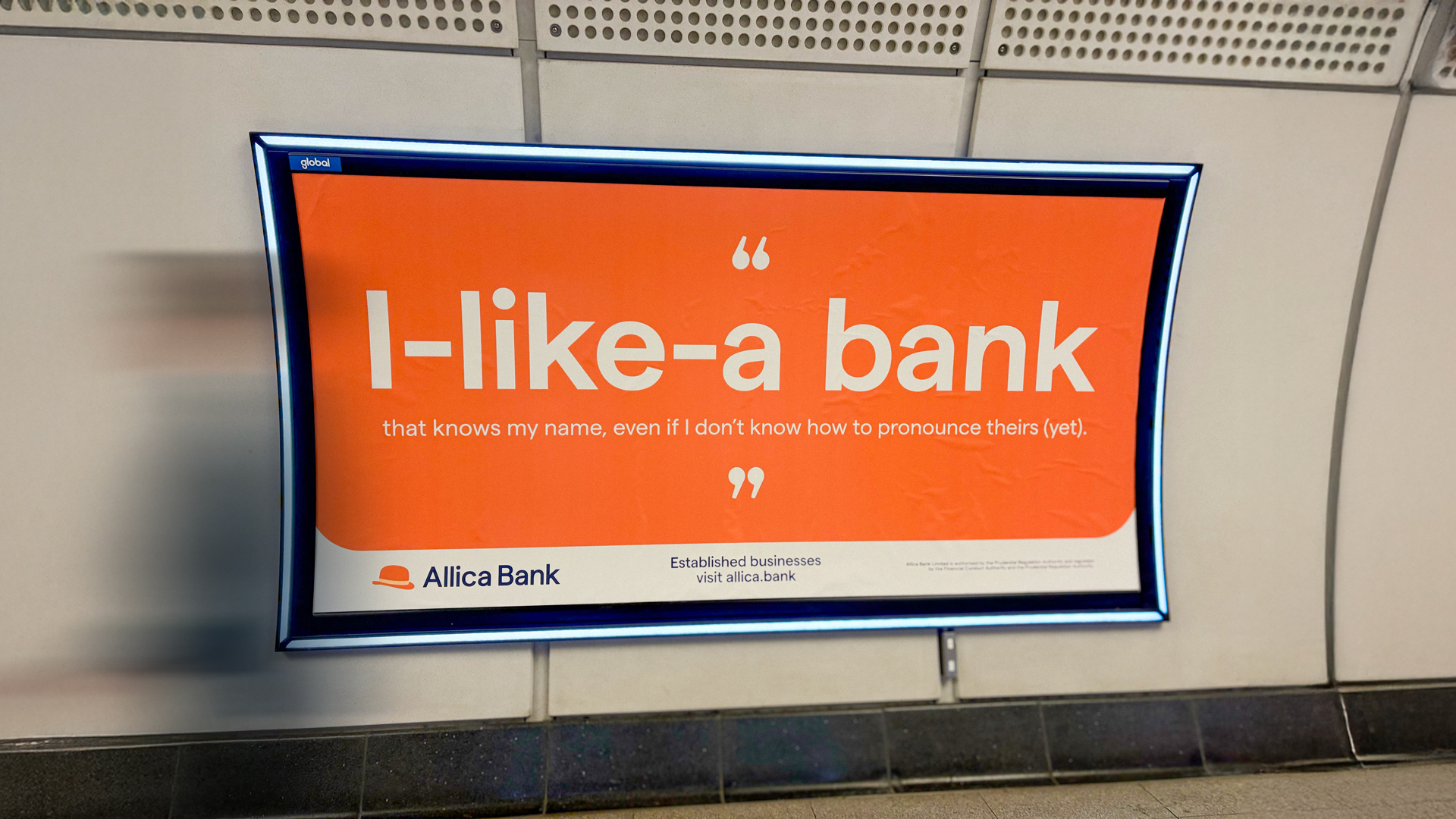Business owners buy properties for lots of reasons, but they share one thing in common: it’s very unlikely that they’ll buy outright with cash.
That’s where commercial mortgages come in. The tricky thing is, they’re not quite as straightforward as their residential counterparts.
There are no secrets to hide, it’s simply that commercial properties are much more complex than your standard two-up, two-down terraced house. They are harder to value, the risks are greater and the reasons for buying vary wildly.
You could be buying a workshop you’ve been renting, upgrading from home-working to an office, buying a larger factory to grow your business or creating a portfolio of commercial properties. Whatever your reasons for looking to buy, this article aims to make the commercial mortgage process a lot less mysterious.
What is a commercial mortgage?
A commercial mortgage is a type of loan a business can take out to fund a property purchase. Provided by a bank, building society or credit union, the loan is secured against the property and repaid over anything from a few years to 25 years or more.
You can choose to fix the interest rate on your loan for a number of years or pay a variable rate, tied to the Bank of England base rate.
The amount of money a finance provider will loan to you is partly assessed against the value of the property. Loan-to-value (LTV) is the ratio of how much you need to borrow vs. how much you have as a deposit. For example, if you are buying a £500,000 property and you have a deposit of £100,000, you need an 80% LTV commercial mortgage.
It’s expensive to buy a commercial property outright. Even if you have the cash to do so, it often makes more financial sense to borrow the money with a commercial mortgage and use your remaining cash in other ways.
Allica Bank’s commercial mortgage rates in 2025
Given the higher variance and complexity associated with commercial properties, lenders set their rates on more of a case-by-case basis.
There’s no comparison site for commercial mortgages, so nobody can tell you what the whole market is doing. We can, however, share some insight from Allica Bank. All of the rates and fees you see listed below come from our own product guide.
As the time we published this article, we’re able to lend between £150,000 and £10 million to UK registered limited companies, LLPs, partnerships and sole traders on terms between five and 25 years.
Our variable rates represent our margin above the Bank of England’s base rate. So, a variable rate of 4.60% should be read as 4.60% + 5.00% (the base rate at the time of writing) = 9.60% in total.
Commercial investment mortgage rates
An investment mortgage is for a property you intend to lease out to another business, with you as the landlord and not the occupant.
|
|
Up to 60% LTV |
Up to 65% LTV |
Up to 70% LTV |
|
5-year fixed rate |
8.50% |
8.60% |
8.90% |
|
Variable (margin over base rate) |
4.60% |
4.70% |
5.00% |
Semi-commercial investment mortgage rates
Semi-commercial properties are a mixture of both commercial and residential space. For example, a building with a shop on the ground floor and a flat on the first floor.
We determine whether a property qualifies as semi-commercial by assessing the percentage of floor space given to residential occupancy. To be eligible, the residential floor space must not exceed 80% or be less than 50%. You must also be able to let the residential space on a separate assured shorthold tenancy. We confirm this percentage at valuation.
|
|
Up to 60% LTV |
Up to 65% LTV |
Over 70% LTV |
|
5-year fixed rate |
6.20% |
6.90% |
7.10% |
|
Variable (margin over base rate) |
2.25% |
3.00% |
3.50% |
Owner-occupied commercial mortgage rates
Owner-occupied mortgages are used for buying a property from which you will operate your business.
|
|
Up to 60% LTV |
Up to 65% LTV |
Over 70% LTV |
|
5-year fixed rate |
7.15% |
7.50% |
7.85% |
|
Variable rate (margin over base rate) |
3.10% + base rate |
3.45% + base rate |
3.80% + base rate |
Owner-occupied semi-commercial mortgage rates
To be eligible for an owner-occupied semi-commercial mortgage, the same floor space requirements apply as with investors.
As a reminder, the residential floor space must be between 50% and 80% of the total floor space.
|
|
Up to 60% LTV |
Up to 65% LTV |
Over 70% LTV |
|
5-year fixed rate |
6.10% |
6.45% |
6.80% |
|
Variable rate (margin over base rate) |
2.00% + base rate |
2.35% + base rate |
2.70% + base rate |
Discounts and incentives
We offer discounts on the rates listed above, based on a few different criteria.
|
Offer |
Discount |
Eligibility |
|
Energy efficiency discount |
0.25% |
If the property has an EPC rating between A and C. |
|
Large loan discount |
0.25% |
If your loan is greater than £750,000. |
|
Additional discount (exclusive to owner-occupied mortgages) |
0.25% |
If you can evidence Debt Service Cover* of 200% at application. (*This is a comparison of the loan amount against your net earnings – essentially proving that you can earn enough to repay the debt in full.) |
The Debt Service Cover discount can be combined with one of the other discounts. For example, if the property is energy efficient (0.25% discount) and you have Debt Service Cover (0.25% discount), your total discount will be 0.5%.
We also offer specialised mortgages for hotels, care homes and children’s day nurseries.
You can find much more information about all of these loans and their associated fees on our dedicated commercial mortgages page.
The differences between fixed and variable interest rates
You’ll be charged interest on your commercial mortgage, just the same as with any other loan.
The amount you owe on the loan will depend on the amount borrowed plus the amount of interest charged for the loan. Every mortgage comes with one of two options for the interest rate applied: a fixed rate or a variable rate.
Fixed rate
A fixed rate commercial mortgage charges you the same interest rate for a period of time (usually two, three, or five years).
This gives you a level of predictability, which can be useful if you’re in a tight cashflow position or like to have a reliable medium-term forecast. On the other hand, if rates drop during your fixed term, you’ll pay more than the average business taking out a loan at that time.
You cannot change your rate (without penalty) until your fixed term is complete. If you reach the end of the fixed term, you can either renegotiate a new fixed rate mortgage or your mortgage will automatically move to a variable rate.
Variable rate
The interest rate on a variable commercial mortgage can change from month-to-month. The rate you pay will be based on the lender’s underlying benchmark (often the Bank of England base rate).
This can work in your favour if rates are falling, but not if they rise. If your lender’s benchmark goes up, so will your repayments.
If you decide you want to remortgage, pay off the debt or move to a fixed rate, you’ll be in a more flexible position than with a fixed rate.
What are the different types of commercial mortgages?
Lenders offer different types of commercial mortgages, depending on the reasons for your purchase and how you intend to use the property.
You will have seen us mention investment and owner-occupied mortgages earlier, but there are a few others to know about as well. We’ve explained them all below.
Commercial investment mortgages
You’ll need an investment mortgage if you’re buying a property to lease it to another business.
Investment mortgages are available to first-time investors as well as those with a portfolio of properties. They’re fairly comparable to residential mortgages, with a few differences like lower LTV ratios and interest rates.
Owner-occupied commercial mortgages
If you want to buy your own premises, you’ll need an owner-occupied mortgage.
Rates on owner-occupied mortgages are generally a little lower than investment mortgages, as they’re seen as lower-risk. The occupant tends to be more invested in the upkeep of the property and the health of the business as a going concern.
Semi-commercial mortgages
Both investment and owner-occupied mortgages are available for semi-commercial properties, too.
These are for properties that combine residential and commercial space – like a shop with a flat above it or a block containing both offices and flats.
To be eligible for a semi-commercial mortgage with Allica Bank, the residential part of the property will need to cover between 50% and 80% of its floor space.
Commercial bridging loans
A bridging loan is a short-term finance option that bridges (hence the name) a financial gap in your plans. They aren’t exclusively for property purchases. You might use a bridging loan to cover an unexpected tax bill or a period of imbalanced cash flow.
When used for property, commercial bridging loans can help businesses purchase non-traditional or difficult-to-mortgage properties, like undeveloped brownfield sites or properties in a state of disrepair. Unlike mortgages, bridging loans are generally secured against your existing assets.
Lenders will want to know you have a clear plan for repayment or exiting the loan. If buying a run-down property, this could be refinancing the bridging loan into a mortgage once it’s been repaired to mortgageable condition.
Refinancing and remortgaging
Remortgaging and refinancing (the terms are interchangeable) is a popular way to access capital quickly, as well as potentially reducing your interest rate and/or monthly repayments.
In short, you’re applying for a new mortgage to pay off your existing loan and better reflect your current equity position. This can be advantageous for a few reasons:
-
If, for example, your original LTV was 70% and your repayments have since brought you to 50%, you should have access to lower rates when remortgaging.
-
You can borrow more than the remaining balance of your existing mortgage and use that excess to improve your cash position. In effect, it’s a way to unlock the equity you’ve built up through repayments and any increase in valuation.
-
Remortgaging can also help you free up cash by reducing your monthly repayments. A smaller loan with a lower interest rate can save you hundreds or even thousands of pounds every month.
There are costs and risks involved in remortgaging, so it’s always advisable to speak to your lender(s) or a broker before making the decision.
What fees are involved in taking out a commercial mortgage?
There are a lot of moving parts and parties involved in a commercial property purchase. As a result, you’ll need to be aware of several fees you’re likely to incur. We can’t give you a precise figure, as that will depend on your business and property.
The main fees to know about are listed below, with examples attached where possible.
Arrangement, processing or product fee
Most commonly called an arrangement fee, this covers the administrative costs of your lender arranging your commercial mortgage.
This can be (and often is) added to your overall balance, so you’ll pay it off over the lifetime of the mortgage.
Arrangement fees can range from 0-3%. At Allica Bank, our arrangement fee is 2% of the loan amount and you can add it to your loan balance, as long as your mortgage is less than £3 million.
Valuation fee
The lender will want to be sure that you’re paying a fair market rate for your property. They don’t want you – or them – overpaying, after all.
Your valuation fee will depend on lots of factors, from the number of units to the type of property it is. See a rough guide to Allica’s valuation fees in the table below.
|
Property value |
Estimated fee (excluding VAT) |
|
Up to £300,000 |
£845.00 |
|
Up to £400,000 |
£945.00 |
|
Up to £500,000 |
£1,045.00 |
|
Up to £600,000 |
£1,145.00 |
|
Up to £700,000 |
£1,245.00 |
|
Up to £800,000 |
£1,345.00 |
|
Up to £900,000 |
£1,445.00 |
|
Up to £1 million |
£1,545.00 |
|
£1,000,000+ |
Quote on request |
Legal fees
You’ll need specialist commercial property lawyers to complete all the relevant searches, checks and contracts. Fees will depend on the size and cost of the property, as well as the complexity of the legal arrangements.
Your legal fees will be the sum of their costs incurred and time spent on your behalf. Lawyers set their own rates and fees, which should be laid out to you in a client care letter before they start any work.
You also pay the lender’s legal fees. As an example, we’ve shared a guide to Allica’s legal fee scale below.
|
Loan amount |
Estimated fee (excluding VAT) |
|
Up to £150,000 |
£900.00 |
|
£150,000-£300,000 |
£1,200.00 |
|
£300,000-£500,000 |
£1,400.00 |
|
£500,000-£750,000 |
£1,600.00 |
|
£750,000-£1,000,000 |
£1,900.00 |
|
£1 million-£1.5 million |
£2,200.00 |
|
£1.5 million and above |
Quote on request |
Broker fees
If you arrange your mortgage through a broker, they will charge a fee. Your broker should explain their costs before they begin any work.
You can expect your broker’s fees to be between 0 and 2% of the total loan value. Some work to a fixed fee schedule.
You don’t have to use a broker to arrange your mortgage, but they can be a useful partner. Their experience, connections and product knowledge are invaluable, as well their access to some broker-exclusive deals.
Early repayment charge
When it comes to overpaying your mortgage, the common rule is that you can make overpayments of up to 10% of the loan value in a 12-month period. If you overpay by more than 10%, you might have to pay a penalty fee.
Allica Bank’s early repayment charge is 3% during the first five years.
Breakage cost
If you are on a fixed rate mortgage and repay your debt before the term is complete, you will be charged a breakage cost.
For example, on a five-year fixed term mortgage with Allica, you would pay 5% in year one, 4% in year two, 3% in year three, and so on.
We’ve written a deeper dive into Fixed Rate Product Early Repayment costs, if you’d like to learn more.
Why should I use Allica for my commercial mortgage?
Having used Allica’s rates and products plenty of times in this article as examples, we think it’s only right to add a bit more colour to what we offer borrowers.
Business owners choose Allica Bank for lots of reasons, but the most common reasons we hear are:
-
The fact that every customer has a dedicated relationship manager.
-
We offer mortgages up to 80% LTV.
-
We lend to a wide scale of valuations, from £150,000 to £10 million.
-
You get a fast response to your application for a commercial mortgage – days, not weeks or months.
-
Every application is individually reviewed by an underwriter, meaning you’ll never be turned down because a computer decided it.
-
The range of products available, across both owner-occupied and investment mortgages – including specialist lending for hotels, care homes and day nurseries.
If you want a real-world example of the difference we can make to your waiting time, we highly recommend reading or watching the story of Fuel Accountancy’s owner-occupied mortgage experience.
If you’re interested in the finer details of Allica Bank mortgages, take a look at our Commercial Mortgage Product Guide.
Or, if you’re ready to apply, you can submit an enquiry about a commercial mortgage now.
Commercial mortgage rate FAQs
You’ll have plenty of questions if you’re thinking of borrowing and we’re always happy to answer them. To help you get ahead with your research, we’ve answered the most common questions we hear below.
Why are commercial mortgage rates higher than residential mortgage rates?
Commercial mortgages have higher rates because they are riskier.
In 2023, businesses went bankrupt at almost triple the rate of individuals – 0.44% of businesses (25,158 out of 5.6 million businesses) compared to 0.15% of people (103,454 out of 67.6 million people).
Commercial properties also tend to be harder to sell or lease. Residential sales outstrip non-residential at a ratio of 8:1 (based on a government report in May 2024).
Commercial properties have much more variance than residential ones. Their use, construction, size and locations are unique – and underwriters don’t tend to like uniqueness!
Can commercial mortgage interest be offset against tax?
Yes, interest payments on commercial mortgages are tax deductible.
The specifics of your situation might change how much you can deduct or whether HMRC will accept any claim. We suggest talking to your accountant or tax advisor for clarification.
How can I get a lower commercial mortgage rate?
The easiest way to lower your commercial mortgage rate is to have a larger deposit, which will decrease your LTV ratio. The less money your lender has to provide, the lower their risk. You’re essentially rewarded for being a relatively low-risk borrower.
The location or construction of your chosen property can also influence your mortgage rate. If you have a choice between two properties, but one is in a safer location or built to higher specifications, that property might attract a lower rate. Again, this is your lender judging it as a lower risk.
The other factors that go into setting your rate are decided by the lender and the wider lending and property environments at the time.
Can I refinance my commercial mortgage?
Yes, it’s possible to refinance or remortgage your commercial property. Your lender will have its own policies about refinancing, but it’s a widely available service.
Business owners can refinance their mortgage to save money (getting a lower rate with their lower LTV or smaller monthly repayments) or release equity.
If you’re thinking about refinancing, speak to your lender about their policies and how they relate to your mortgage.
Want to get on the ladder?
Commercial mortgages can seem complex, but hopefully after reading this article you have a clearer insight as to how they work.
It doesn’t matter if it’s your first or your fiftieth commercial property, buying is still a significant commitment and – hopefully – a positive experience. Good luck with your purchase, if you choose to make it. We’ll always cheer on Britain’s SMEs whether we’re lending them the money or watching from afar.
We’re serious about making banking and borrowing better for businesses, so if you have any more questions about commercial property, get in touch with us. We’ve got an expert team of commercial finance professionals and we’re always happy to discuss your situation – with no obligations or hard sells involved.
Enquire about a commercial mortgage
Please see our:
Mandatory information checklist
Disclaimer: This is information – not financial advice or recommendation
The content and materials featured in 'Commercial mortgage rates in 2025' are for your information and education only, and are not intended to take into consideration any particular recipients’ financial situation. The product details and interest rates referred to are correct at the time of writing.
The information does not constitute financial advice or recommendation and should not be considered as such. Allica Bank will not accept any liability for any loss, including without limitation to, any loss of profit, which may arise directly or indirectly from use of or reliance on such information.





